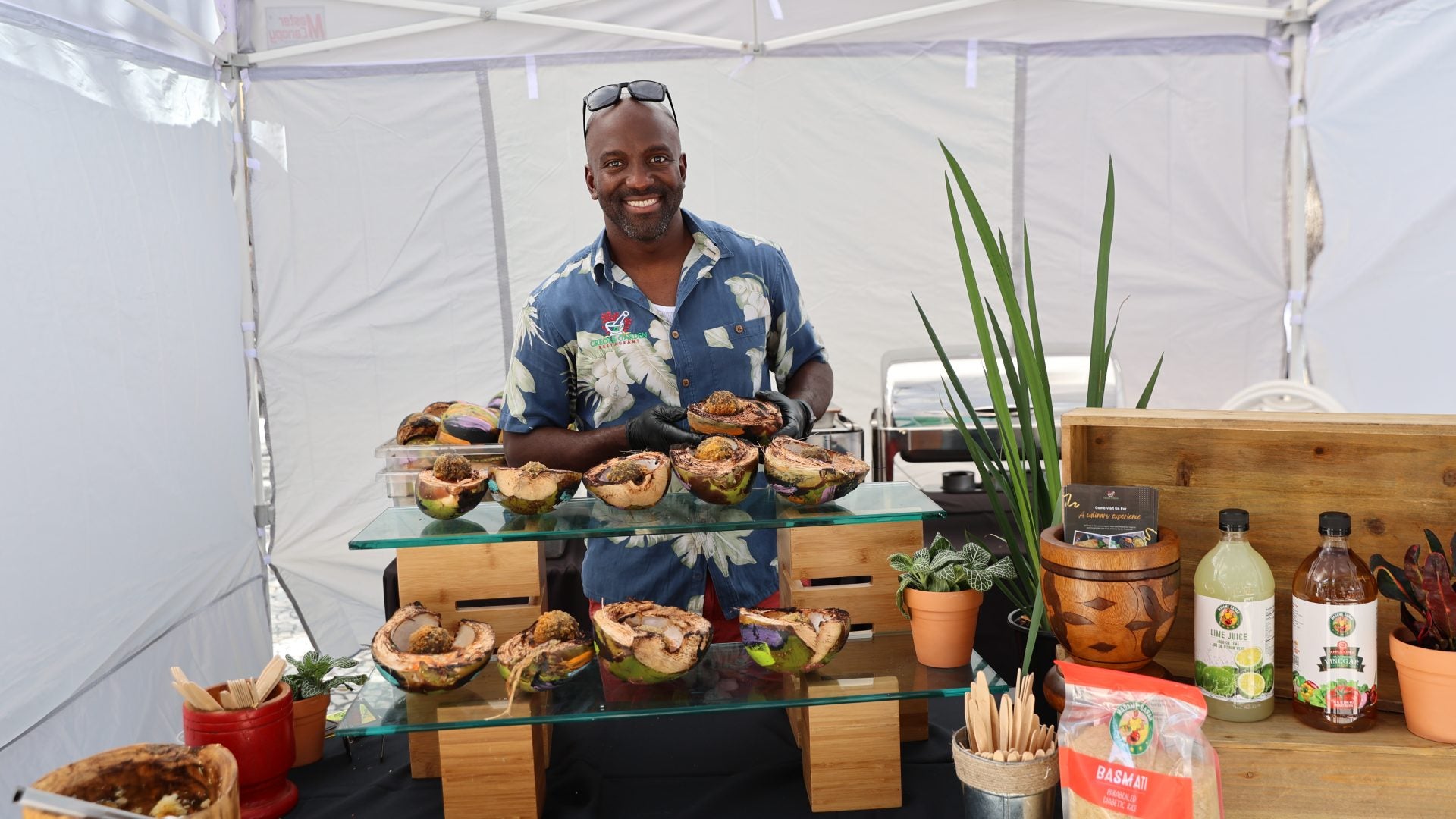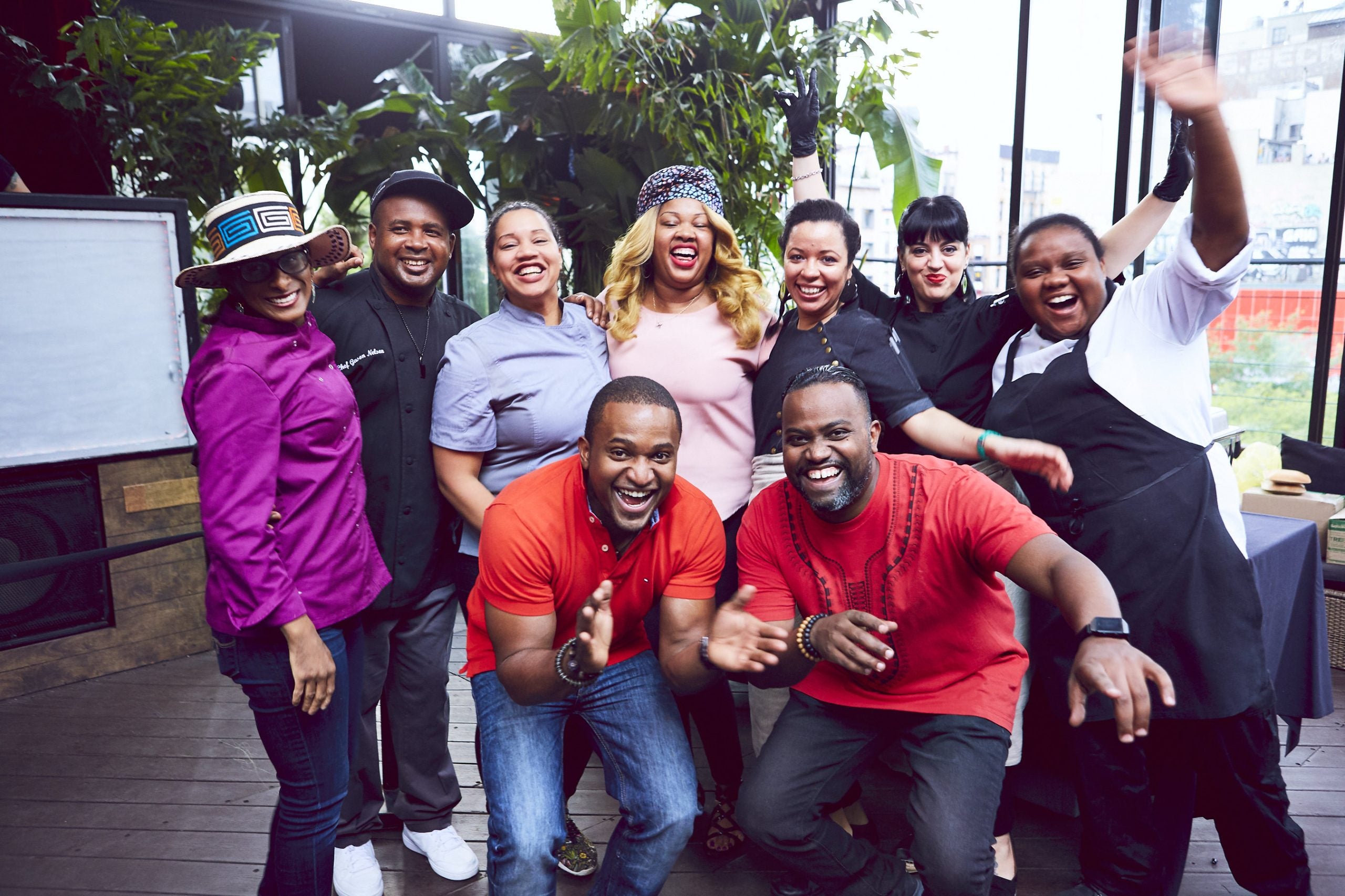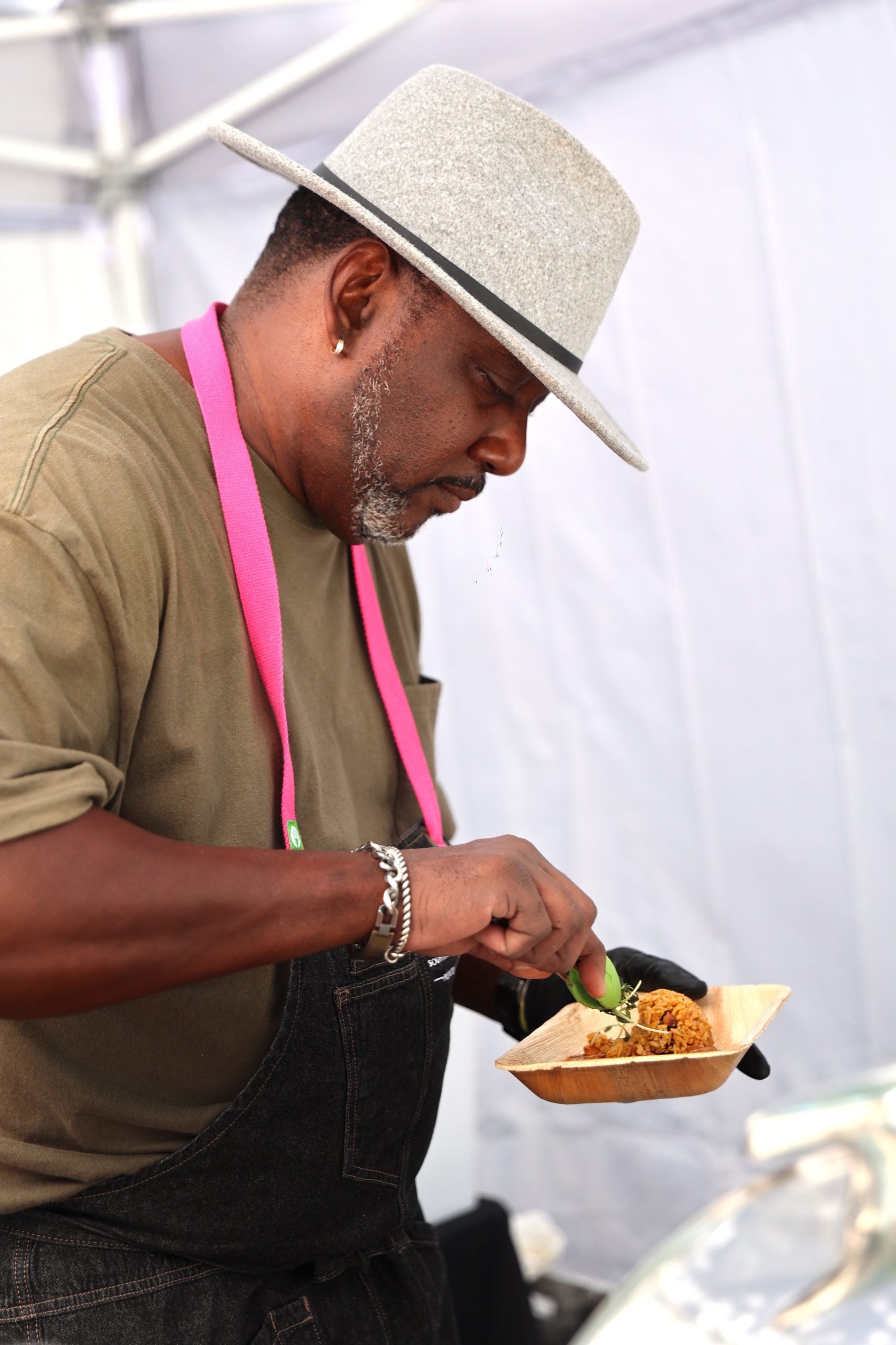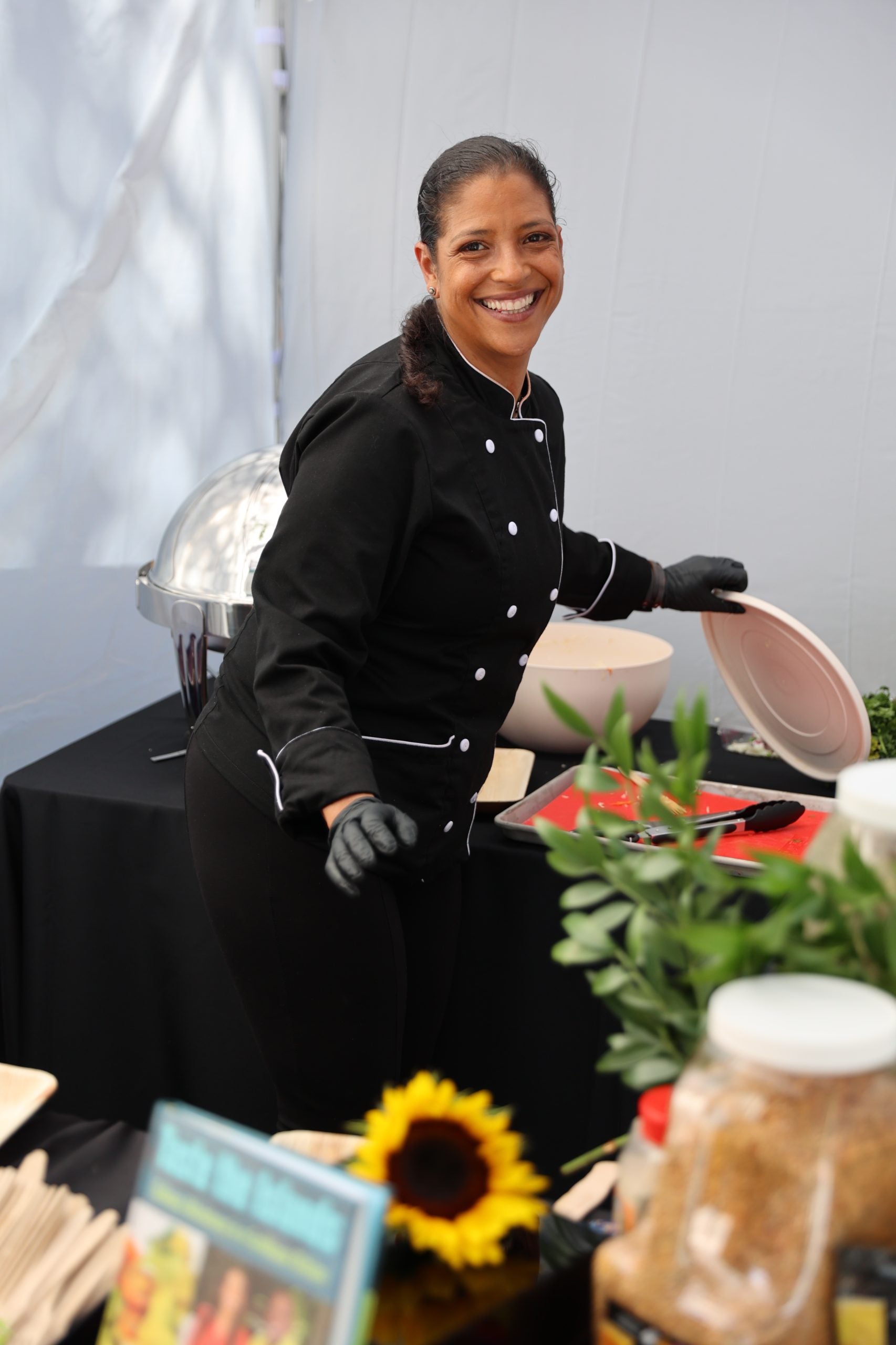
The Creole Food Festival has become a culinary beacon, illuminating the diaspora’s vibrant flavors and rich culinary traditions. This year, as it returns to New York City on July 20 and 21, the festival is not merely a celebration of Creole cuisine but a nod to the diversity of culinary traditions across the diaspora.
With its intricate blend of spices, ingredients, and techniques, Creole food reflects the historical and cultural tapestry of regions influenced by African, Caribbean, Latin American, and Southern heritages. The term “Creole” itself embodies a melting pot of influences. This festival captures the essence of Creole cuisine, from its spicy jambalayas and gumbo to its sweet plantains and savory mofongo.
“Normally, people, when they think about Creole food, they normally think about Haiti or New Orleans. But what people forget is that there’s creole food in Africa, it’s in the Caribbean. It’s in Latin America… So we wanted to showcase that,” said festival co-founder Fabrice Armand.

A Journey Through Flavor and Culture
Since its inception in 2019, the Creole Food Festival has evolved significantly. Originally a local NYC event, it has since expanded to four major US cities, including Miami and Atlanta, drawing attention from food enthusiasts and chefs across the country. The festival’s growth can be attributed to its commitment to celebrating culinary diversity and providing a platform for top Black chefs and chefs of color. The festival, now a renowned platform for celebrating the rich tapestry of Creole cuisine, has become a unique platform to showcase top Black chefs and chefs of color while forging connections across the African diaspora.
“The festival has always been about celebrating the diverse flavors of the African diaspora, but its evolution has been remarkable,” said Fabrice Armand, co-founder of the festival. “We’ve expanded not only in the number of participating chefs but also in the geographical reach and cultural depth.”
This year, the festival will feature an impressive lineup of 15 chefs, including celebrated names like Chef Adrianna Urbina, a three-time Food Network champion from Venezuela, and Chef Todd Richards, a Southern culinary pioneer renowned for his innovative barbecue. “Our goal is to highlight the best culinary talent from various cultures, and this year’s lineup is a testament to that commitment,” Armand shared with ESSENCE. Other notable participants include Chef Eric Johnson from New Orleans, Chef Isha Gutierrez-Sumner representing Honduras, and Chef Abdul Salam representing the Ivory Coast and Jamaica.
More Than a Food Festival: A Cultural Experience
According to its founders, the Creole Food Festival’s unique ability to merge culinary excellence with a vibrant cultural experience sets it apart. The festival is not just about food; it celebrates music, art, and tradition. This year’s event will feature a diverse musical lineup, including reggaeton artists from Latin America, a Haitian konpa and Afrobeat performers.
“The festival is designed to stimulate all the senses,” says Armand. It’s about creating an immersive experience where attendees can taste, hear, and see the richness of the cultures we represent.” This year’s New York City festival venue will be transformed into a lush, enchanting space with floating lanterns and greenery, creating an ambiance reminiscent of a tropical paradise.

A Platform For Diverse Talent
Beyond its culinary and cultural offerings, the Creole Food Festival is a crucial platform for established and emerging chefs of color. “One of the main reasons we started this festival was to provide a stage for chefs who might not have had the opportunity to showcase their talents elsewhere,” says Brown. The festival ensures that every featured chef receives an honorarium and food budget, a commitment that Armand says sets it apart from many other food festivals.
This focus on supporting chefs of color extends to the festival’s broader mission. “We recognize that chefs of color often have to work harder to gain recognition,” he notes. “Our festival is not just about celebrating their food but also about creating opportunities and bringing their talent to new audiences.”

Connecting The African Diaspora Through Food
The Creole Food Festival’s emphasis on the connections between different cultures within the African diaspora is a central theme. “We’re proud to be the only food festival that truly spans Africa, the Caribbean, Latin America, South America, and the Southern U.S.,” Armand told ESSENCE.. “Food is a powerful connector, and our festival embodies that by bringing together diverse culinary traditions in one place.” The festival’s ability to create a sense of unity and shared heritage through food has resonated deeply with attendees. “Many people come to the festival and find that the food reminds them of their heritage or their family’s cooking,” he shared. “It’s a way to honor those traditions and connect with others who share similar backgrounds.”
Despite its success, the Creole Food Festival has faced significant challenges, particularly in securing sponsorships. “We’ve encountered obstacles, such as sponsors backing out at the last minute, which has made it difficult to sustain the festival’s high standards,” the co-founders admit. However, it continues to thrive thanks to the commitment of its founders and team.
Looking ahead, the festival plans to expand further and launch an Indiegogo campaign to support its growth and establish a scholarship fund for aspiring culinary professionals of color. “We want to ensure that the festival’s impact extends beyond the event itself,” Armand emphasized. “We hope to make a lasting difference in the culinary world by supporting emerging talent and expanding our reach.”
As the Creole Food Festival makes its return to New York City, it promises to be a celebration of culture, food, and community. With its rich lineup of chefs, immersive experiences, and dedication to supporting chefs of color, the festival continues to set a high standard for culinary events. It remains a vital platform for showcasing the diverse flavors and talents of the African diaspora.





